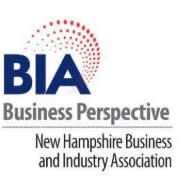Advice to candidates: Business community needs solutions to pressing challenges

Advice to candidates: Business community needs solutions to pressing challenges
In less than a month, voters in New Hampshire will elect the next leaders in congressional and state offices. All candidates, but particularly those running for state office, can benefit from listening to Granite State employers and hearing their top concerns.
The Business & Industry Association, New Hampshire's statewide chamber of commerce and leading business advocate, heard the top issues facing our members, other employers and community leaders during this summer’s policy roundtable talks across the state. BIA’s roundtables are held every two years ahead of fall elections to collect ground-level information about the most pressing challenges for employers. In turn, this feedback informs BIA’s public policy priorities and gives employers a collective voice candidates should hear.
Around 230 participants joined 10 talks and clear themes emerged. Employers are most concerned about workforce availability, workforce housing and the soaring cost of energy. Another top issue was the lack of affordable and available childcare, which keeps many parents, and potential workers, out of the labor market. There are many other issues, but these routinely ranked as the greatest threat to employers’ success.
While BIA’s roundtables have a pronounced business focus, each issue stretches beyond the workplace and across every community.
BIA members shared many reasons for the shortage of workers. An emphasis on traditional four-year college education has depleted the talent pool of skilled laborers. Yet, manufacturing and the trades are critically important to a functional economy and the income potential of such jobs exceeds many professions. This is why BIA continues to support efforts to strengthen career and technical education in the state.
But traditional college education is essential for many employers and business leaders say New Hampshire should better fund its universities and colleges. Limited funding, they say, has led to the high cost of post-secondary degrees, causing many students to leave New Hampshire for their college education and many don’t return.
The biggest contributor to the shortage of workers, however, is the lack of housing. This isn’t limited to retail and service industries. BIA member employers in manufacturing, health care and education routinely share stories of potential employees turning down jobs because they can’t find housing. Without more affordable options, New Hampshire’s population will further stagnate, making the current labor shortage even worse. There have been gains of late, but they must be expanded, and it must be understood how important it is to solve the housing crisis, which is at the center of many challenges. It will be difficult to continue the state’s economic expansion without more housing for working women and men.
Most employers and residents will take major financial hits from elevated costs of electricity and heating fuels as winter edges closer. The high cost of energy is sapping money from other areas of the economy, threatening to slow overall growth. Business expansion and consumer spending, both crucial to a vibrant economy, will be at risk the longer high energy costs remain. The cost of energy is one of the most difficult issues to address at the state level because many of the causes occur outside the state. However, an inclusive, all-energy-resources approach is key to achieving a cost-effective, reliable and diverse energy mix. It’s vital to support market-based solutions and not impede them with a narrow focus that can’t deliver short- to long-term relief, economically and environmentally.
All these issues require elected officials to think in terms of solutions and work together with an openness to compromise that delivers results. Solutions are needed that provide some immediate relief while establishing paths toward long-term and lasting improvements. New Hampshire’s economic foundation is strong, but it cannot be taken for granted. Now is the time to address the major issues to propel the state forward as a great place to conduct business, live and play.
The best way to keep taxes low and make proper investments is to grow the base. That requires elected officials committed to addressing the most important and pressing economic issues, and that starts with focusing on them. As the Nov. 8 election nears, candidates should talk to employers and learn what keeps them up at night. Employers are not only business leaders, most are New Hampshire residents. They care deeply about the Granite State’s success.
Michael Skelton is president and CEO of the Business & Industry Association.
Additional Info
Media Contact : Rick Fabrizio, rfabrizio@biaofnh.com
